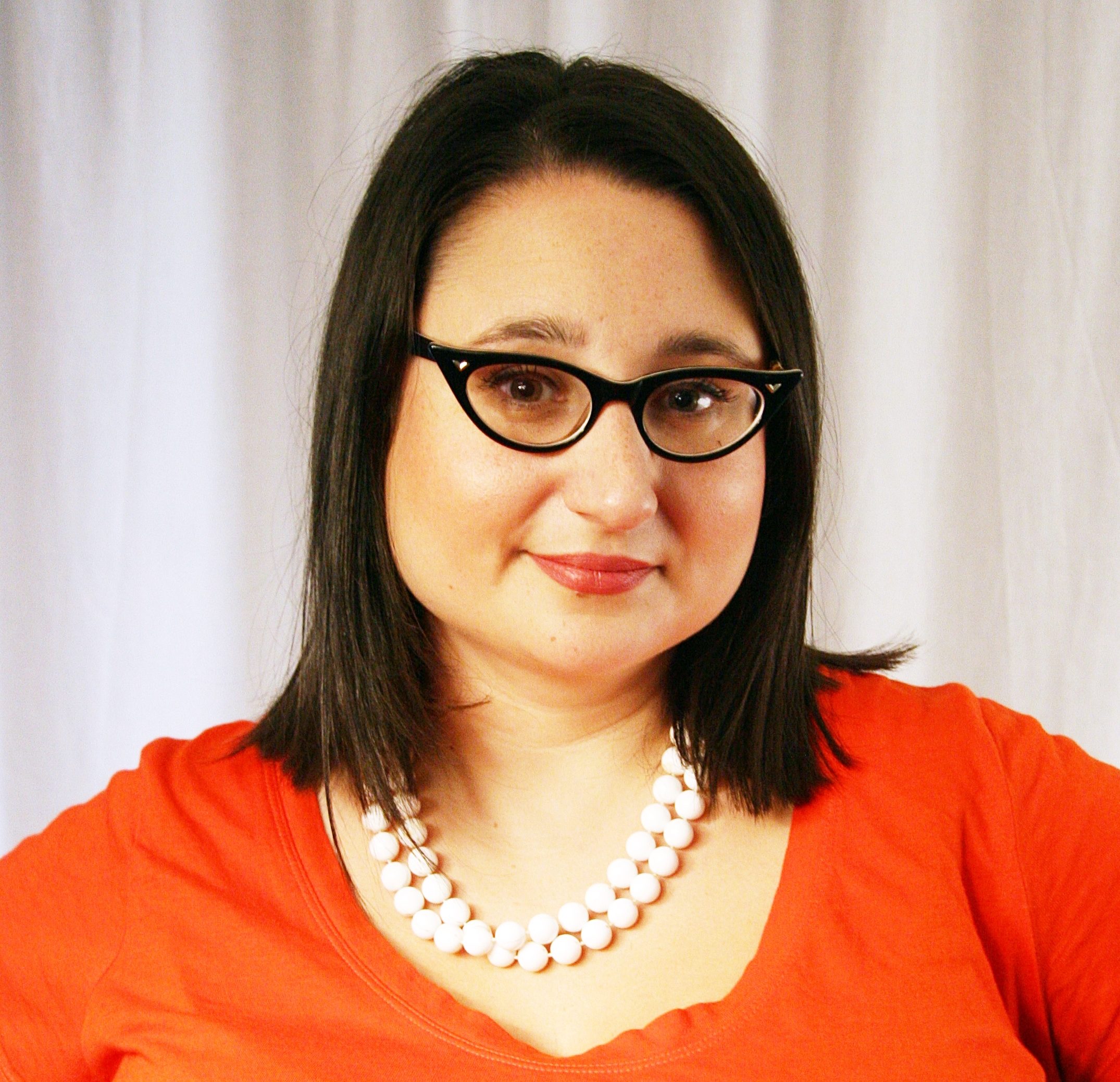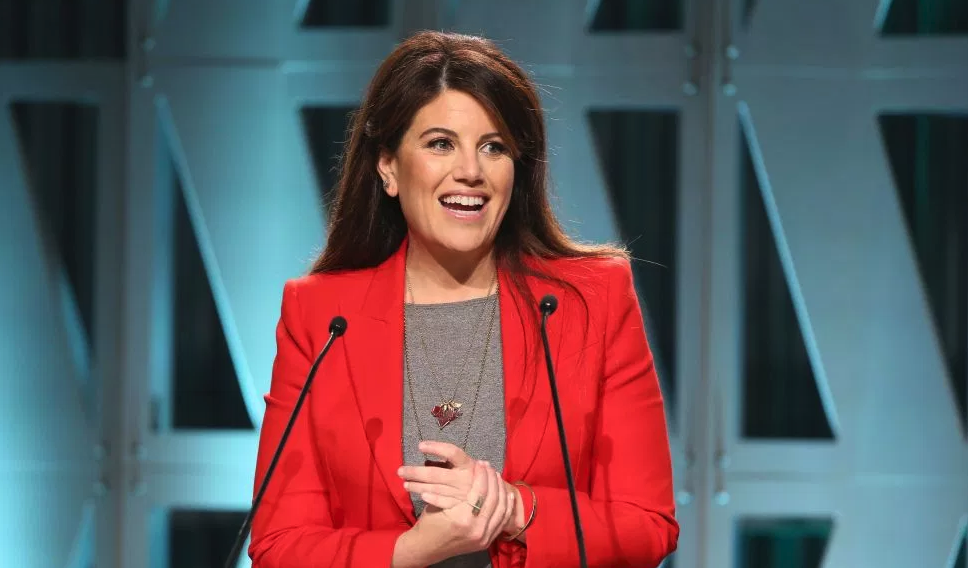Monica Lewinsky is back with a powerful message about how to thrive after facing seemingly insurmountable obstacles. In a segment on Last Week Tonight with John Oliver, she spoke candidly about the steps she took to reclaim her life and identity, eventually becoming a strong anti-bullying advocate.
In case you need a quick refresher, Lewinsky was a White House intern between 1995 and 1997, during which time she was involved in a sexual relationship with President Bill Clinton. The moment the story surfaced in 1998, she instantly became the butt of jokes and ridicule, facing a level of public scrutiny and media coverage that was incomparable at the time. (Remember, this was when the 24-hour cable news cycle was really taking off, and news outlets latched on to every minor detail.)
Lewinsky has discussed her past and described how she has moved on before — most notably in her 2015 TED talk and through her work as a contributing editor to Vanity Fair. But her interview with Oliver was especially helpful, as she detailed how she used what she learned to emerge on the other side stronger than ever. Here are a few of the takeaways from their conversation:
Take the time you need to heal
The Monica Lewinsky we see today isn’t the same traumatized young girl who went into hiding for years after the scandal broke — (Lewinsky revealed in Vanity Fair that she was diagnosed with post-traumatic stress disorder from her public ordeal. “My trauma expedition has been long, arduous, painful, and expensive,” she wrote.) Today’s version took time to emerge. “There were stages,” she told Oliver.
In the interview, she described wearing a black beret (yes, like the one she wore in the now iconic news footage of her hugging Clinton) to a ’90s theme party recently — something she definitely would not have done in the years immediately following the incident. Rather than expecting things to go back to normal right away, she rebuilt her own life on her own terms, and emerged as a powerful voice against bullying. “You can get through it. You can move past it,” she said. “I know it feels like in this one moment that your life will forever be defined by this, but it won’t. And it may be hard, it may take more time than you can ever have imagined, but you can move past something like this.”
Own your mistakes
Fortunately, the way we view Lewinsky and her relationship with Clinton has shifted significantly in recent years, thanks to factors like the #MeToo movement, and reconsidering the power dynamics of the situation. But despite this new narrative, Lewinsky doesn’t pretend like she made all the right decisions. “That’s not to say that I wasn’t flawed, and that I didn’t make terrible mistakes, or do stupid things, or say stupid things — because of course I did,” she told Oliver.
Lean on others for support
When Oliver asked her how she managed to survive the incessant public shaming, Lewinsky’s first answer is that she doesn’t actually know. She then went on to say that she couldn’t have gotten through the “avalanche of pain and humiliation” without her family and friends. Never underestimate the power of community to help get you through a trying situation.
Stay true to yourself
In the years following her time in the spotlight, Lewinsky moved to England to attend the London School of Economics where she received her Masters of Science degree in social psychology. She told Oliver that she thought that once she finished grad school, she would be able to get a job and then be identified as someone’s employee rather than the Monica Lewinsky people knew from the news.
But she quickly found that it was easier said than done, and that had an impact on how she viewed herself. “There was this wide range of not being able to support myself and also have a purpose, which is equally important to feel that you matter in some way,” she explained.
Many people suggested that there was a way around this: changing her name. This was not something Lewinsky considered for several reasons. First, she said that she didn’t think it would have worked and people would have recognized her anyway. Second, she didn’t want to start off her professional life on a lie.
Most notably, though, it was on principle.
“Bill Clinton didn’t have to change his name. Nobody’s ever asked him did he think he should change his name. And so I think that’s an important statement,” Lewinsky told Oliver. “I’m not proud of all of the choices I’ve made in my life, but I’m proud of the person I am. I’m not ashamed of who I am. And I think that as hard as it has been to have that last name sometimes, and the pain that I’ve felt of what it’s meant for the other people in my family who have that last name, I am glad I didn’t change it.”
Use humor, where appropriate
Lewinsky knows exactly why she has a platform today, and you’d better believe that she’s going to use it. And she’s probably going to make it funny.
Humor is one of our most powerful weapons for exposing truths, and she has harnessed that power better than most. Between wearing her black beret to a party, or identifying herself on Twitter as “the chick from over 125 rap songs,” Lewinsky has taken what could have ruined her and uses her experience to make people think — and laugh.
Reach out to others who are struggling
Through she’s glad social media didn’t exist when she was in the spotlight, Lewinsky did acknowledge that it would have been helpful to receive supportive messages from other people.
“One of the things that happen with these types of experiences is that you start to disappear. You start to feel like you don’t matter,” she told Oliver. “And I think that when somebody sees you and just acknowledges your humanity in the smallest way it really can make a world of difference. And you never know, it could save someone’s life.”
Follow us here and subscribe here for all the latest news on how you can keep Thriving.
Stay up to date or catch-up on all our podcasts with Arianna Huffington here.


